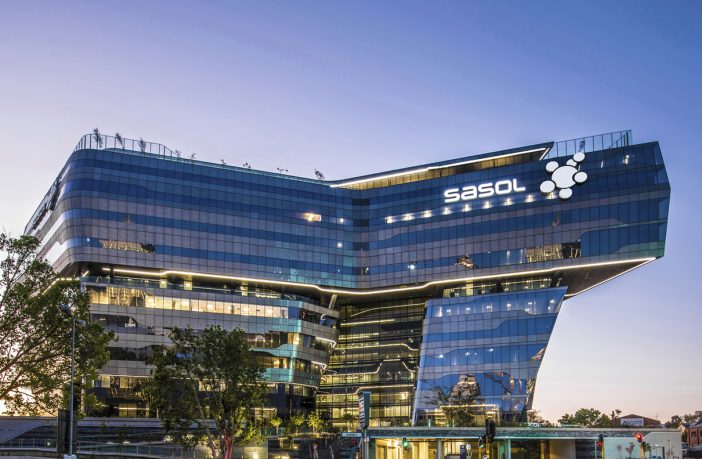- Just Share, supported by shareholder activist organisations ShareAction (UK), Majority Action (USA), Follow This (Netherlands) and the Australasian Centre for Corporate Responsibility (ACCR) (Australia), has written to Climate Action 100+ (CA100+) the world’s largest investor engagement initiative, seeking its intervention in Sasol Limited’s continued refusal to table climate-related shareholder resolutions.
CA100+ consists of over 500 investors with more than USD47 trillion in assets under management. It was established to ensure that the world’s biggest corporate greenhouse gas emitters “take necessary action on climate change”. As one of the 100 companies responsible for up to two-thirds of annual global industrial greenhouse gas (GHG) emissions, Sasol is amongst the initiative’s initial focus companies.
Sasol shareholders Ninety One and Coronation Fund Managers are members of the CA100+, but they are not the CA100+ “lead engagers” with Sasol. These are AllianceBernstein and Fidelity International.
For the third consecutive year, Sasol has refused to table a climate-related shareholder resolution. Just Share and the RAITH Foundation filed a resolution on 19 October ahead of Sasol’s 20 November annual general meeting. On 30 October, Sasol advised Just Share that the resolution would not be proposed to shareholders, arguing that shareholders are not entitled to vote on the subject matter of the resolution.
In the letter to CA100+, Just Share sets out in detail the reasons why we dispute Sasol’s legal argument against tabling shareholder resolutions. These reasons include the fact that Sasol’s legal advisors have misinterpreted the Companies Act, in order to elevate Sasol’s board to a position of dominance over shareholders which is contrary to the fundamentals of company law and South Africa’s Constitution.
Sasol’s argument has already been entirely undermined by the fact that five listed South African companies have tabled shareholder resolutions on climate risk in the past 15 months, without any adverse legal consequence.
The 19 October resolution would have required Sasol to include, in its annual reports from 2021: its strategy to align its global operations with the goals set out in the Paris Climate Agreement (“the Paris Goals”); short, medium and long-term Scope 1, 2 and 3 GHG emission reduction targets, and how these targets are aligned with the Paris Goals; and how executive remuneration will incentivise achievement of these targets.
Sasol’s current target is to reduce its South African GHGs by “at least” 10% (off a 2017 baseline) by 2030. Sasol’s public disclosures state that Sasol supports the Paris Agreement, but do not show how this target is linked to the Paris Goals. Rather, the 10% reduction target is “based on the probability of success of potential reduction opportunities, associated risks, economic viability and balance sheet capability to finance these activities”.[1]
Sasol accuses Just Share and RAITH of trying “to micromanage the Company by seeking to impose specific methods for implementing complex policies in place of the ongoing judgements of management as overseen by the directors”. Sasol claims that the resolution will “take away the discretion of the Sasol board of directors (Board) to act in the best interests of the Company in relation to the commitment to the Paris Agreement and goals and the reduction of emissions”.
Sasol’s argument is incorrect. The resolution asks it to show how its global strategy and emission reduction target are aligned with the Paris Goals. Given the company’s frequent statements of support for the Paris Agreement in its Climate Change Reports and in public fora, the resolution reasonably asks Sasol to show how its strategy is giving effect to this stated commitment. None of Sasol’s disclosures provide shareholders with this information.
Furthermore, Sasol’s response implies that by proposing shareholder resolutions, the proposers themselves seek to wield control over the company’s management. This ignores the obvious fact that all shareholders must vote on any proposed resolution, and that it only becomes binding on the company if more than 50% of those shareholders approve it.
“Sasol’s interpretation of South African company law is just that: an interpretation, and a flawed one which has been developed to support the company’s resistance to shareholder oversight of its climate strategy. Its position is not supported by the Companies Act or the Constitution”, says Just Share’s director for climate change engagement, Robyn Hugo.
For decades, climate activists have been demanding that Sasol take meaningful and urgent steps to reduce its harmful emissions. To date, however, the company has failed to demonstrate the necessary ambition or urgency, despite the fact that its GHG emissions – core to Sasol’s operations and current business model – represent severe risks to climate action, shareholders, and the company itself.
Next steps
In recent months, CA100+ has called on 161 CEOs and Board chairs of the world’s largest GHG-emitting companies, including Sasol, to establish net-zero business strategies, and set targets to support the delivery of these strategies.
The shareholder resolution submitted by Just Share and the RAITH Foundation is aligned with Sasol’s stated commitment to the Paris Agreement, with the CA100+ initiative’s goals, and with the public commitments of many of Sasol’s biggest shareholders.
“Submitting shareholder resolutions which all other shareholders can vote on at a company’s AGM improves transparency and corporate governance, and is the only way to ensure that every shareholder voice is heard in a meaningful way”, says Just Share’s executive director, Tracey Davies.
It is clear that the engagement undertaken, to date, by South African institutional investors has been ineffective in persuading Sasol to set a robust, Paris-aligned decarbonisation strategy. As has been demonstrated time and again across the globe, without the tool of shareholder resolutions, engagement strategies, whether run by civil society or institutional investors, are limited in their effectiveness. Far more forceful stewardship is required, and Just Share and our supporters look forward to working with CA100+ to ensure that Sasol plays its integral part in the just transition to a low-carbon economy.
Author: GBA News Desk
Source: Just Share















